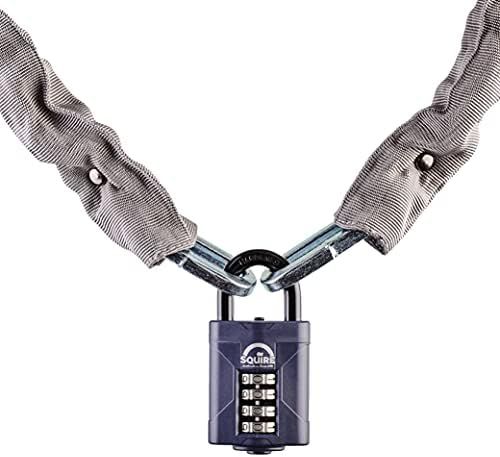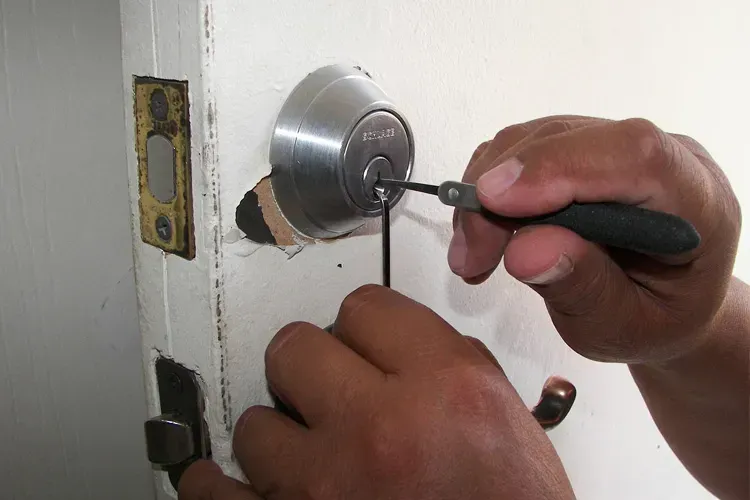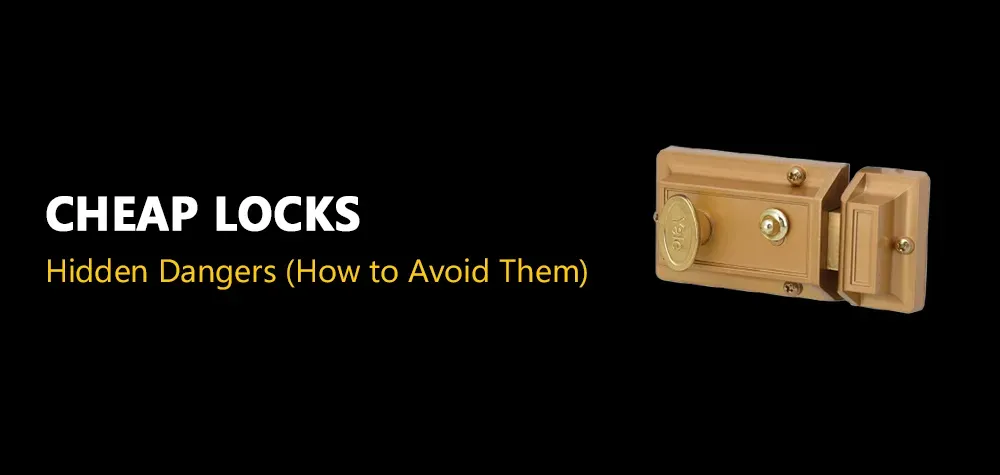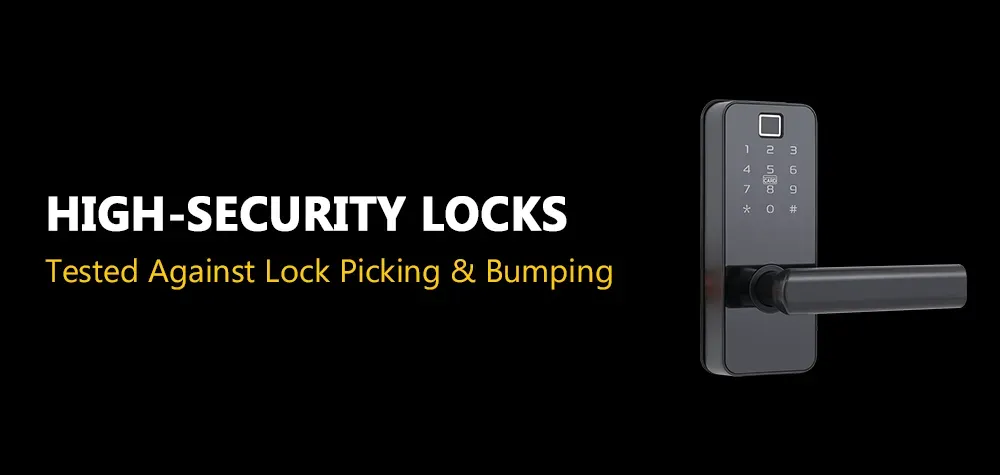How Lock Types Impact Rekeying
As the guardian of your security, the lock on your door stands as the first line of defense against unwanted access. Yet, when circumstances prompt a need for change, understanding the nuances of the rekeying process becomes paramount. In this exploration, we delve into the intricate relationship between lock types and the complexity of rekeying, shedding light on the vital considerations that could safeguard your property.
Exploring the Evolution of Rekeying Technology
The advent of key changeable cylinders in the mid-19th century revolutionized rekeying by introducing interchangeable cores that could be easily replaced without dismantling the entire lock. This innovation significantly reduced the time and effort required for rekeying, making it a more practical solution for locksmiths and property owners alike.
In the latter half of the 20th century, advancements in mechanical engineering led to the development of master key systems, allowing for complex hierarchies of keying arrangements within a single property. This innovation enabled greater control and flexibility in access management, particularly in large commercial or institutional settings.
Addressing Common Misconceptions About Rekeying
Despite its importance in maintaining security, rekeying is often surrounded by myths and misconceptions that can lead to misunderstandings about its necessity and effectiveness. Let's address some of the most common misconceptions and debunk them:
Myth 1: Rekeying is only necessary after a security breach.
Debunked: While rekeying is indeed essential after a security breach to prevent unauthorized access, it's equally crucial as a proactive security measure. Rekeying should be performed periodically, such as when moving into a new property, experiencing employee turnover, or simply to maintain optimal security. Waiting until after a breach occurs can leave your property vulnerable to exploitation.
Myth 2: Rekeying is a complex and expensive process.
Debunked: Rekeying is actually a relatively simple and cost-effective solution compared to changing locks entirely. With the right tools and expertise, locksmiths can quickly reconfigure the internal mechanisms of a lock to accept new keys while rendering old ones obsolete. Additionally, the cost of rekeying is typically lower than purchasing and installing new locks, making it an accessible option for property owners looking to enhance security.
Myth 3: Rekeying only involves changing the locks.
Debunked: Rekeying does not necessarily require replacing the entire lock. Instead, it involves adjusting the internal components of the lock to work with a new key while invalidating the old ones. This process is much quicker and less disruptive than replacing locks, making it a convenient option for maintaining security without significant downtime.
Myth 4: Rekeying can be DIYed without professional assistance.
Debunked: While some may attempt to rekey locks themselves, it's generally recommended to enlist the services of a professional locksmith. Locksmiths have the expertise and specialized tools required to perform rekeying accurately and efficiently. Attempting to rekey locks without proper knowledge and equipment can result in damage to the locks or compromised security.
Unveiling the Basics of Rekeying
Before we plunge into the impact of lock types, let's revisit the essence of rekeying. This locksmithing art involves adjusting the lock's internal mechanisms, rendering existing keys obsolete while introducing new ones. It's a cost-effective alternative to changing the entire lock, perfect for situations such as moving into a new home or enhancing security protocols.
However, beyond its cost-effectiveness, rekeying serves as a versatile solution that can adapt to various security needs. Whether it's addressing concerns related to employee turnover in a commercial space or enhancing the safety of a residential property, rekeying offers a customizable approach to security management.
Moreover, it's crucial to recognize the impact of environmental factors on the performance of locks. Temperature fluctuations, for instance, can significantly affect the mechanisms within a lock, potentially compromising its functionality over time. Understanding how changes in temperature affect locks is essential for maintaining optimal security and preventing potential issues from arising.
The Symphony of Pin Tumbler Locks
Considered the maestro in the realm of locks, pin tumbler locks are pervasive in residential and commercial spaces. Their intricate design consists of a series of pins of varying lengths, requiring precise alignment for the lock to turn. When rekeying pin tumbler locks, the locksmith skillfully adjusts the pin combinations, orchestrating a harmonious blend that responds only to the newly configured key.
When the need arises to alter access to a pin tumbler lock—be it due to a change in personnel or a desire to bolster security—the process of rekeying comes into play. Rekeying offers a strategic solution that negates the necessity for complete lock replacement. Instead, a skilled locksmith adeptly manipulates the internal pin configurations, effectively resetting the lock to accept a new set of keys while rendering the old ones obsolete. This meticulous adjustment orchestrates a harmonious blend of pin combinations, ensuring that the lock responds exclusively to the newly configured key.
After successfully rekeying a lock, it's essential to take proactive steps to maintain its longevity and ensure continued security. Regular maintenance is key to preserving the integrity of the lock mechanism and preventing potential issues down the line. Simple measures such as lubricating the lock cylinder with graphite or silicone-based lubricants can help keep the internal components operating smoothly. Additionally, periodic inspections to check for signs of wear or damage, such as loose screws or misalignment, can preemptively address any issues before they escalate.
Navigating the Landscape of Wafer Locks
In contrast, wafer locks offer a simpler tune. Commonly found in automotive and filing cabinet applications, wafer locks employ flat wafer-like pieces instead of pins. Rekeying this type involves rearranging and reconfiguring these wafers, akin to rearranging notes in a melody. The process is efficient, making wafer locks a practical choice for certain security needs.
One of the notable advantages of wafer locks is their efficiency in the rekeying process. With the right tools and expertise, locksmiths can quickly disassemble the lock cylinder, rearrange the wafers, and assemble it back together, significantly reducing downtime and inconvenience. This efficiency makes wafer locks a practical choice for certain security needs, particularly in scenarios where frequent rekeying or maintenance is necessary. When considering security measures, it's essential to understand the distinction between rekeying and changing your lock. Find out now!
Dancing with Disc Detainer Locks
Disc detainer locks, renowned for their robust security features including rotating discs that thwart picking attempts, require specialized expertise when it comes to rekeying. This task demands a locksmith with authoritative knowledge of the lock's inner mechanisms and the finesse to align multiple discs precisely to a new key. Any misstep during this intricate process could compromise the lock's security. Therefore, it's imperative to entrust the rekeying of a disc detainer lock to a seasoned locksmith who can execute the task flawlessly, ensuring the integrity of your security measures remains uncompromised.
Embracing Smart Lock Choreography
As technology continues to revolutionize the security landscape, smart locks gracefully take center stage alongside traditional counterparts. With their electronic components and connectivity prowess, these locks introduce a new era of rekeying. Enter Brothers Locksmith, masters of the intricate choreography between code and connectivity. Their expertise ensures a seamless transition when upgrading your security to embrace the smart lock revolution. Whether it's syncing devices or programming access codes, Brothers Locksmith orchestrates the dance of modern security with precision and finesse, ensuring your peace of mind in the digital age.
Future Trends in Rekeying and Lock Technology
As technology continues to advance at a rapid pace, the landscape of rekeying and lock technology is poised for significant evolution. Several emerging trends are shaping the future of security, offering innovative solutions to enhance access control, convenience, and overall safety. Let's explore some of the key trends to watch out for:
1. Biometric Integration: One of the most notable trends in lock technology is the integration of biometric authentication methods, such as fingerprint scanning, facial recognition, or iris scanning. Biometric locks offer a high level of security by verifying an individual's unique physiological traits, eliminating the need for traditional keys or access codes. As biometric technology becomes more sophisticated and affordable, we can expect to see widespread adoption in residential, commercial, and institutional settings.
2. Internet-of-Things (IoT) Connectivity: The rise of IoT connectivity is revolutionizing the way we interact with our security systems. Smart locks equipped with IoT capabilities can be remotely controlled and monitored via smartphone apps or connected home devices. This enables property owners to manage access permissions, receive real-time alerts, and track entry logs from anywhere in the world. With the ability to integrate with other smart home devices and systems, IoT-enabled locks offer unparalleled convenience and versatility.
3. Predictive Analytics and Artificial Intelligence: The integration of predictive analytics and artificial intelligence (AI) is transforming the way we approach security risk assessment and management. AI-powered security systems can analyze vast amounts of data, detect patterns, and anticipate potential security threats before they occur. In the context of rekeying, AI algorithms can optimize access control strategies, dynamically adjusting keying arrangements based on changing security needs or user behaviors. This proactive approach to security enhances overall effectiveness and reduces the likelihood of breaches.
4. Blockchain-Based Security Systems: Blockchain technology, best known for its application in cryptocurrency transactions, is increasingly being explored for its potential in enhancing security systems. Blockchain-based locks offer decentralized and tamper-proof access control, leveraging cryptographic algorithms to validate and record access transactions securely. By eliminating centralized points of vulnerability, blockchain technology enhances resilience against hacking and unauthorized manipulation, providing a robust foundation for rekeying and access management.
5. Environmental Sustainability: With growing awareness of environmental sustainability, there is a rising demand for eco-friendly security solutions. Manufacturers are exploring materials and manufacturing processes that minimize environmental impact while maintaining security and durability. Additionally, advancements in energy-efficient lock mechanisms and low-power IoT devices contribute to reducing the carbon footprint of security systems. As sustainability becomes a key consideration in design and production, we can expect to see more environmentally conscious options in rekeying and lock technology.
As these future trends continue to unfold, the realm of rekeying and lock technology holds immense potential for innovation and improvement. By embracing emerging technologies and adopting proactive security measures, we can create safer and more resilient environments for generations to come.
Choosing Brothers Locksmith for Your Rekeying Overture
When the curtain rises on the need for rekeying, entrust your security symphony to Brothers Locksmith. Our virtuoso locksmiths harmonize expertise with efficiency, ensuring that the complexities of lock types are seamlessly navigated. Elevate your security experience – choose Brothers Locksmith for a rekeying performance that strikes the perfect chord.
Call Us Any Time!






